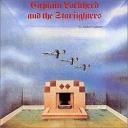Yahoo Answers is shutting down on May 4th, 2021 (Eastern Time) and beginning April 20th, 2021 (Eastern Time) the Yahoo Answers website will be in read-only mode. There will be no changes to other Yahoo properties or services, or your Yahoo account. You can find more information about the Yahoo Answers shutdown and how to download your data on this help page.
Trending News
Is India a brother continent to Europe?
The similarities and parallels are astounding. Both with their shared origins, Civilizational challenges, and relations with other regions.
Both places emerged as Civilizational powerhouses when Aryan tribes migrated to them. Both places (with the exception of the Dravidian Language groups in South India and Hungarian, Finnish, Basque, and Turkish in Europe) speak Aryan languages.
The Roman Empire was the contemporary of the Gupta Empire. Both places endured an Arab invasion in the 8th century. Both places endured Turkic invasions beginning in 1000AD.
India's Sanskrit language and Buddhist religion has left an indelible and long lasting mark on East Asia. Much how the English language and communism (communism like Buddhism is a creation of its founder criticizing the wealth and power inequalities in his homeland) has come to in the 20th and 21st centuries.
Anyway, random thoughts. What do you all think?
4 Answers
- Anonymous7 years agoFavorite Answer
i'm from Europe, europeans and indians are totally different.
trust me I know some indians, the language (not english), the culture and the mentality are really different
- B KLv 77 years ago
In modern times, there have been, and still are very close links between Britain and India - obviously, since it was once part of the British Empire - in fact not so long ago, India only gained full Independence from Britain in 1947, ending 300 years of British involvement in India
But not so much in the rest of Europe, at least not in modern times. It's not until you go back to ancient times that there are striking links especially in the languages spoken.
Of course there are similarities in the main languages spoken in Europe and India. The Latin (Romance), Greek, Slavic, Baltic, Albanian, Germanic and Celtic languages of Europe are all Indo-European languages, as is Sanskrit, and Hindi/Urdu/Hindustani.
Obviously with the exception of Dravidian languages, Hungarian, Finish, Estonian, and Basque - which are not Indo-European languages.



